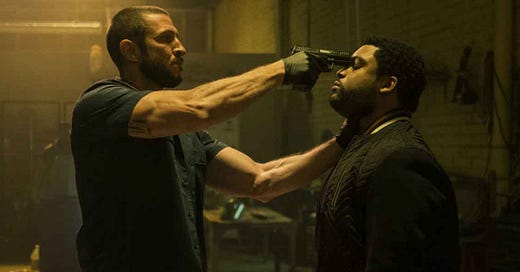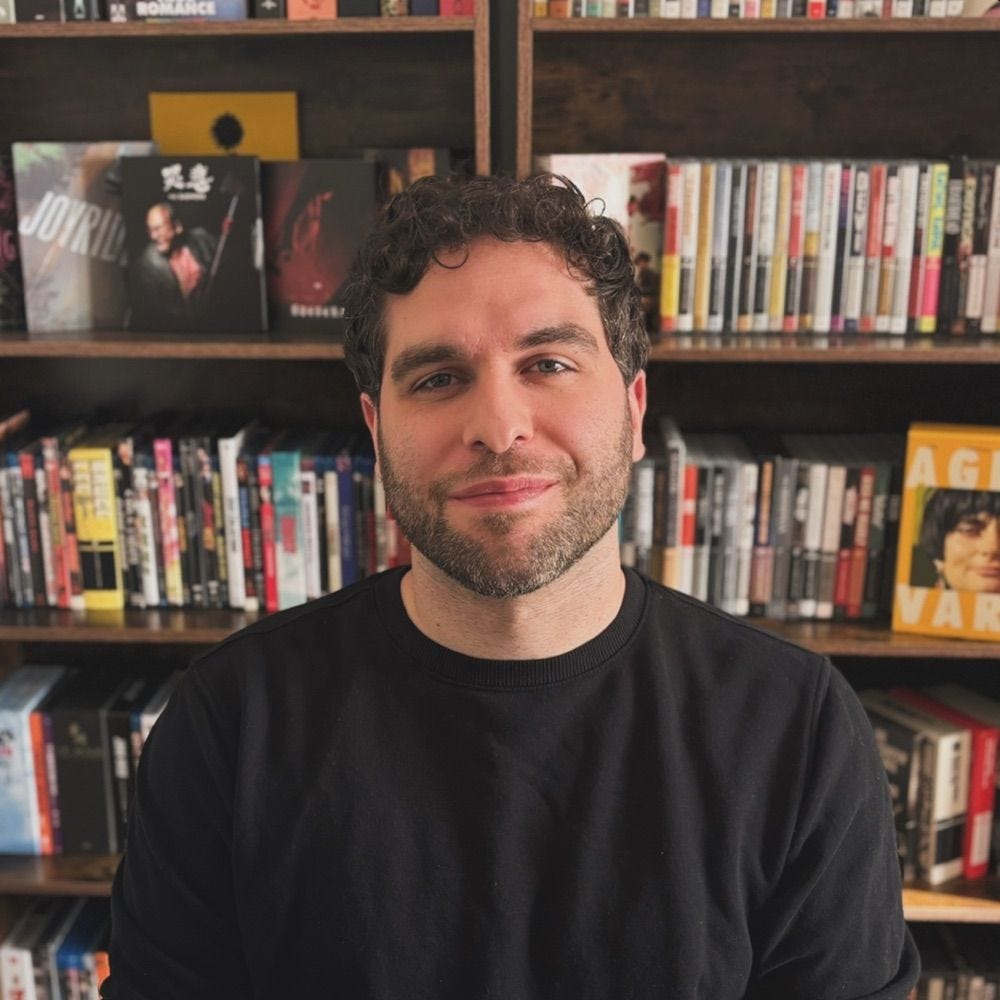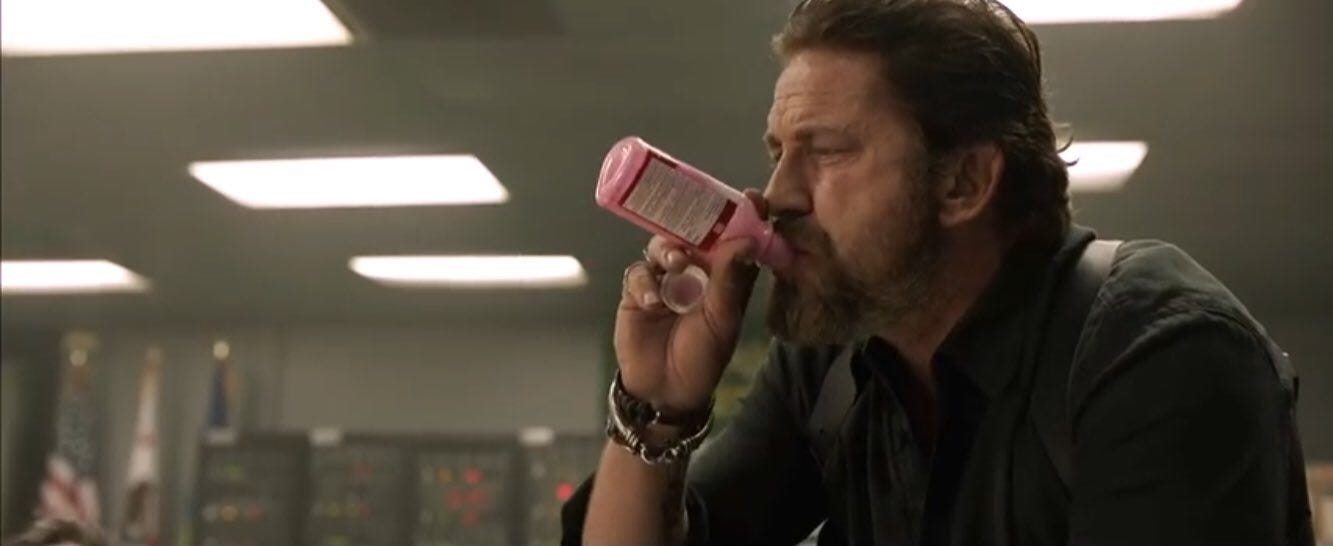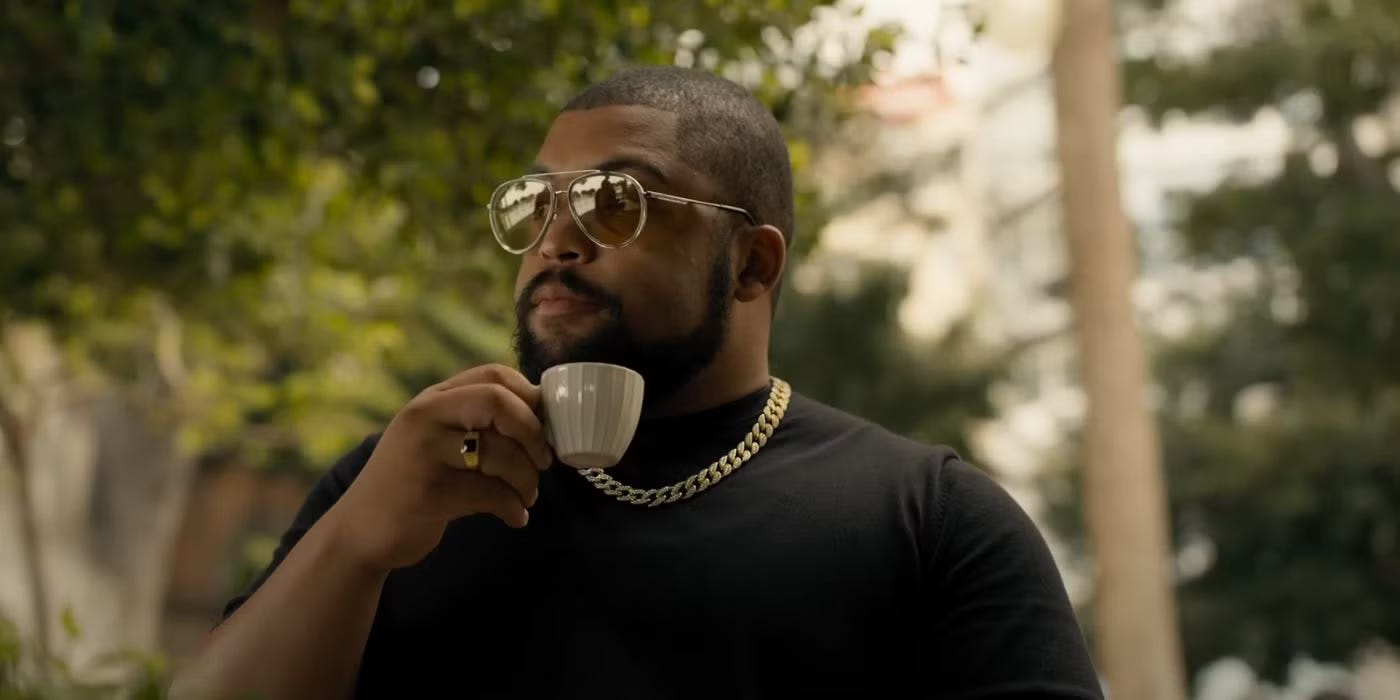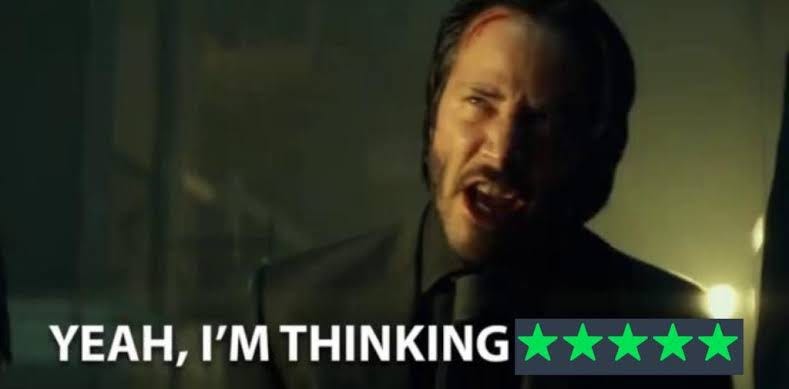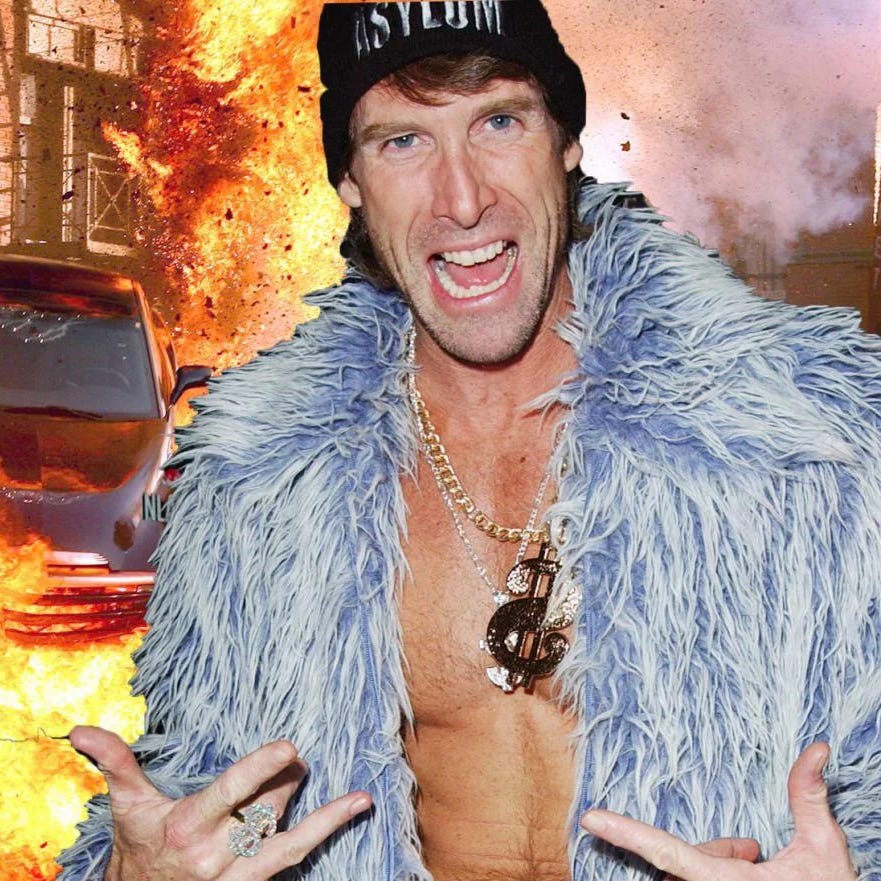We’re now in the glorious month of the year known to many as “Dumpuary,” a corridor in which studios have traditionally released the most lowbrow (and often troubled) productions following their glut of prestige releases for awards consideration in December. But one film on 2025’s calendar for the first month caught many eyes that you might not expect from the critical community — Den of Thieves 2: Pantera.
It’s hard to tell where the line between irony and sincerity lies, as is so often the case with any internet phenomenon. But this 2018 January release featuring the age-old blurry line between cops and criminals has slowly been amassing fans over the last 7 years since its somewhat unceremonious and unremarkable premiere. For many, including myself, Den of Thieves arrived on my radar from an unlikely source: German director Christian Petzold, director of high-minded dramas like Phoenix, Transit, and 2023’s more comedically-tinged Afire. The filmmaker listed it among his favorites of 2018 and then was put on the spot to defend the left-field choice at a Q&A; his full-throated defense (cued up in the video) below makes the rounds with any update around the now-franchise.
“I said to all my nerd friends in Berlin,” Petzold recalled, “this is a great movie. They started laughing, and they came back the next evening with two thumbs up.” It’s not just a piece of escapist fun, though that avenue of consumption is available if you want it. The original Den of Thieves is a slick action flick that has real observations about the people and places it surveys if you care to look into its black heart. It’s also got a great anchor in Gerard Butler’s hammy but heartfelt turn as Big Nick, a crooked cop who’s simultaneously more pathetic and more powerful than you assume he’ll be in any given moment.
Among the many things that finally got me to push play on the original Den of Thieves (available on Max) and go see Den of Thieves 2: Pantera on opening night this past week was a piece examining some of those subtextual elements from
on his Substack . “These are anonymous dirtbags, both cops and robbers, whose lives and misdeeds exist in a void of violence, pain and ultimately, death,” he highlights. “Gudegast discards any notion of romance or aspiration and in turn gives us one of the most clear-headed depictions of the interchangeable meaningless of both sides of the law.”Today, I’m featuring a conversation with Brandon about that piece, the Den of Thieves series, and what makes great action cinema at large. I hope you’ll find that it gives you a new lens to think about the type of entertainment you may be likely to watch while scrolling social media (or ignore altogether).
What do you make of Den of Thieves one versus two?
I think 2 is a step down, but I think 2 is very good. I think the action's very good. I love their dynamic. I think it's Gerard Butler's best performance in 2. I think he's bringing so much more to that character. At first, it feels very slapstick-y, but then you realize it's a performance within a performance. I like 2 a lot, but I don't think it's the movie 1 is. It's a miserable masterpiece, like, and 2 leans into the fact that they grew like a cult following with memes and everything over the years. The second one leans into that a little too much for my liking. There's a little bit of self-awareness.
The first one balances being a crime and a heist movie, and 2 is just a pure heist movie.
I saw someone compare it to Ocean’s Twelve, which I think is an apt comparison. It's shaggier, but it's fun.
If Letterboxd is correct, you didn't catch up with Den of Thieves until 2021. What made you give it a watch?
I'm obviously a big action fan, and I had heard a lot about it. I guess I missed it when it came out because I don't think the marketing was all that great. I don't even remember getting a trailer for it, which is weird because it was around the same time as bad movies like Mile 22 and stuff like that coming out. I remember seeing trailers for that kind of stuff, but I never remembered seeing a trailer for Den of Thieves.
Then, I just started to hear about it from friends. At first I was like, "Oh, it's another Gerard Butler action movie." I like a lot of his stuff, like some of the Has Fallen movies ... shitty politics and all. [laughs] Geostorm is so stupid but very fun. It just didn't cross my radar until Twitter and some of my friends. I decided to get the Blu-ray and watch it, and I was just completely blown away by it. There have been a lot of jokes about how it's "dumb Heat" or "Heat for meatheads." I think that first movie has a lot of lot more going on with it.
The reason the movie was on my radar was because of that Christian Petzold clip that's become like a meme every time Den of Thieves comes up. He talked about it being a portrait of the declining working class, which you point out in your piece.
I think what most struck me is it's an incredibly sad movie. There is an element to it that has that Monster energy feeling, but beneath that is a very accurate portrait of those kinds of people. I grew up with a lot of people like that — not as dangerous or anything, thank God! But I grew up with people who had very similar mindsets to a lot of the criminals, and some of the cops, in the movie. It just felt so accurate to me that these are the kind of guys that would be doing something like this.
Den of Thieves fits in that weird sub-genre of action or heist movies where it's a little bit about former military coming back home and not being able to make a living, which I always find fascinating. I have very complicated thoughts on the military. One of my good friends, VyceVictus, writes about this a lot because he is a former military and has complicated feelings about coming home and being treated like a hero but you don't feel like a hero. You feel conflicted about the things you did, and then on top of that, a lot of people are left to fend for themselves after. I don't want to get too deep into it, but I think there's a misconception that people go into the military, at least in the modern age, because they want to defend the country. What's forgotten is a lot of these people do it because it's the only way to make money they have. To come home from that and to be denied benefits ... look at a movie like Ambulance, one of my favorite movies, which is all about that.
I think that there's a really interesting thing that Den of Thieves has going on where Pablo Schreiber's character is not necessarily a bad guy, and I find that stuff always draws me in. And on top of that, you have the extra layer of the cops feeling like the criminals in the movie. They flat-out say it at one point: "We're the bad guys." To use the LA sheriff's office with the complicated history of LA cops is fascinating. It took me aback by how miserable the movie was, on top of how fun it is.
Those complicated feelings about the military, entering with rosy ideals about upholding some sort of system, and then ending up disillusioned after, feel like they have a domestic parallel with law enforcement and its relationship to criminality. Big Nick must have started on the force with some sense of honor before he faded into moral murkiness.
The second one really touches on that, too, where it goes into why he entered the police force. He had a personal tragedy, and he wanted to catch the bad guys. The second one takes a more fun tone with the movie because it recognizes that there's a cult following and plays into how ridiculous of a character Big Nick is. But I do think there's a little bit underneath that of how he entered for the right reasons and then became exactly what he despised. He became a little disillusioned, and now he's part of the criminal element. I don't think the second one is as interested in the more somber elements of his whole story. I think it's there to be more of a fun caper in Europe, which is fine. But I do like that they touch on why he got into this and what happened to him to make him so murky as a person.
The tragedy is played a little bit more as a punchline. The first time we see Big Nick in Den of Thieves 2, he's got the divorce papers in his mouth over the urinal!
I love that. There are always these jokes about how Gerard Butler found his niche playing the world's most divorced man. That image just takes that to the furthest possible endpoint of pissing with your divorce paper.
Our friend Bilge Ebiri described Gerard Butler as "an action star for the age of the declining action star." He's leaning into this image, but there's almost a burlesquing of these over-the-top masculine shenanigans that he's doing. What do you make of him?
It's very funny that he was tapped to be our next leading man. He's in rom-coms; he played the Phantom [of the Opera]; then, he found his action lane with 300 and started doing a lot of typical action movies and everything. But I feel like he's really settled into [playing] scuzzy greaseballs, the antithesis of what we look at with action heroes. We love chiseled muscles and guys who have their shit together, and he just doesn’t. He's his best when he does that. He's great in the movie Plane doing the same thing.
Bilge put that perfectly. I don't think there's anyone out there doing this kind of job that is as charismatic or funny as Big Nick in real life, but I do think there's something more real to what Gerard Butler is doing as opposed to some other action stars. He doesn't feel like a superhero; he feels like a guy you would see on a bender on the weekend. I mean, we do see him on a bender in both of these movies. I think his performance is pretty terrific. It's very fun to be like, "Oh, Gerard Butler's a caricature," but especially in the first movie, he really gets to a sadness with this kind of guy. I think he plays it a lot with a lot more nuance than most actors would allow for.
In the second one, I think that sadness is still present, and I think it adds to how good his performance is. He's a loser in both movies, but it's more explicit in the second because now he's with this world-class criminal group. These guys are so smooth, and he just shows up like a lumbering idiot in a Hawaiian shirt making a fool of himself. It's really remarkable the layers that he's able to add to Big Nick in both of these movies.
How much of the success of movies like Den of Thieves is because the people look convincing? Especially Butler, who meets the description of what some snarky tweet said is missing from today’s movie stars: he looks like he could take a brick to the face.
Oh, absolutely. I mean, their faces look like bricks, so that helps. Even O'Shea Jackson Jr.'s character, especially in the first one, is the softest of the bunch because he's the brains of everything. But there's even a level of toughness behind him that you buy, even if you know Pablo Schreiber and 50 Cent are more of the muscle of everything.
Do you think movies like Den of Thieves are underappreciated as a kind of folk mythology, maybe even cueing us into the possibility of something like a second Trump term before the election?
I think that's a really good point. Like I said, I feel like I grew up with a lot of people who spoke the way that the gang speaks, were covered in tattoos, and everything. I'm not in contact with a lot of those people anymore; a lot of those people went down different paths than me. So I don't agree with the things they say, but it feels very honest to see a movie like this. Then you watch interviews with Christian Gudegast, and he feels like those same people. I do think he tapped into something that I don't think is spoken of a lot. I do think it's underappreciated as a modern urban myth. A lot of action now, even the second Den of Thieves, leans into the extravagance of action cinema. The Fast and Furious movies went from being this kind of movie to what they are now. Even the John Wick movies, which I love, are a complete fantasy. Even the second Den of Thieves leans into the Fast and Furious [style] of action movies, but that first one feels like a more honest action movie that I think we're used to seeing, which is refreshing.
Any movie that's playing with the cop and criminal divide to some extent is saying: "The world is just a for-profit enterprise now, everyone who's in power is corrupt, the average person's getting screwed, it ultimately doesn't matter which side you're on, and the only sensible way to survive is just to take from the people who are hoarding all the resources." You get that spirit in the second one, too, but more so in the first.
I think there's a good amount of that in the second one. I've been cautioning people who ask me, "How good is the second one?" I'm like, "It's a lot of fun and a really good movie. You're just not going to get the cynicism that you were maybe hoping for." I do think it's there a little bit.
🚨 SPOILER ALERT IN BELOW PARAGRAPH🚨
When he arrests O'Shea Jackson Jr, you think, "Oh no, they're telling you the cops are the good guys here." And then, he doesn't do the right thing at the end. He lets him go, and I love that, because it gives you hope that Big Nick is still a dirtbag that. Den of Thieves 3 won't find him back at his job. I just re-watched the Kiyoshi Kurosawa movie Cure the other night, and it's funny to compare that to Den of Thieves. I always like when your hero and villain are kind of the same person. Den of Thieves really has that with Big Nick and Pablo Schrieber's Ray Merrimen. They're a mirror of each other. One bad break, Big Nick could have been Ray. One good break the other way, Ray could be Big Nick.
When you're watching something in this genre, what clues you into a movie having more on its mind or is worth excavating beyond the surface?
I think it is just the script and what it's willing to dive into. In terms of it being well-made, the thing that will always grab me is how great the stunt work is, or how great the stunt work is. There are a lot of movies that come and go with shootouts in them, and you don't remember them. What stuck for me beyond Den of Thieves feeling like it was just a well-written script that had very honest characters, was The shootout in that movie. It's not as good as Michael Mann or John Woo — I mean, what is? — but it's up there. That's what took me aback as as much as it felt like it had more on its mind. Even if it didn't have anything to say, I think I would still find value in it. I was really taken aback by this January Gerard Butler release, which he was in danger of becoming the next Liam Neeson where you get three a year, and they're all anonymous. But you watch this one, and you're just like, "Man, this has really great filmmaking behind it." This was surprising to me because Christian Gudegast was a first-time director. He had only written some of the Has Fallen movies.
I got into the action world with the direct-to-video stuff, guys like Scott Adkins and everything. 90% of those movies aren't good when it comes to the script; they're basic revenge movies of one guy on a mission. But I'm always blown away when something like that can display great fight choreography, cut it well, and shoot it well. That's what I'm kind of looking for with action. I can overlook a lot of things if it feels like there's genuine attention to detail in the craft. Den of Thieves really had that for me. It was exciting to see someone who seemed like they knew how to shoot a gun direct this movie.
What is your rubric for assessing a good action movie or scene?
I think it's different for everyone. Not to insult any average moviegoer, but I do think some people can watch a movie like Bullet Train, then watch a movie like John Wick, and get the same thing from them. That was apparent because both made $100 million, but I don't like Bullet Train. The average person isn't going into a movie like Bullet Train and looking at it going, "Oh, this action is kind of shitty to look at." For me, it's one, not being cut to ribbons. But I also think it's how it's cut, which really excites me. If you know how to cut a fight scene together in terms of following the punch and having it land the way the punch was thrown ... a lot of action films forget that. You'll see someone's arm swing, and then the next cut will be coming from the other direction as the person's face is hit. The movie Nobody does that a lot, and it feels like such a nitpicky thing to complain about, but it does bother me because I feel like that loses the impact of the action.
I used to say, "I want to see a one-take fight scene. I want to see the choreography." But then as I started to watch more of these, I was like, "Maybe that's not what I'm looking for. There needs to be some level of cinematic intent behind it, which comes from the editing." I realized what I was looking for wasn't necessarily a movie not being cut to shreds, but a movie just being cut well. You can always tell when someone knows what they're doing, but it all comes down to me feeling like there's no impact behind the fight. I don't mind if a fight is cut up a little bit. I do mind if you're not matching your cuts well in it. The fight loses its impact for me. Car chases are a different thing, but I wanted to kind of highlight fights because that's been my fascination.
What’s the balance between “this is a fun thing I enjoy watching” and “let me think really deeply about this” with action? Some people might think a deep analysis of the subtext in a movie like Den of Thieves is antithetical to enjoying the movie, and I think they can go hand in hand.
Yeah, absolutely. I completely get what you're saying about how some people will tell you, "Oh, it's not that deep." I've found myself a little boxed in with action for sure the last few years, and when I did move to New York, I made a real goal for myself to try to branch out. But I'm also kind of proud to be boxed in because I do feel like there is a bias from critics against action. You'll get the one or two a year where the critics at bigger publications will all rally behind and go, "Oh, this is actually a great movie," and ignore the rest. A big breaking point for me was a movie like The Beekeeper, which, yes, is ridiculous. It's so silly as a Jason Statham/David Ayer movie. I think it's very well made; I think the action's great; I think it does have a little bit on its mind. I mean, he kills [a character standing in for] Hunter Biden in it! I think it's obviously saying something. I don't quite know what it's saying or if I fully agree with what it's saying in some aspects, but it is saying something.
What bugged me last year with the conversation around that movie specifically is I was watching a lot of these critics who would give a movie like The Raid or John Wick five stars and say these movies are a smarter brand of action. But then you'd read their reviews, and the entire review would be them loving it. And, at the very end, there'd be a paragraph that was like, "Well, but we can't in good conscience say this is a good movie." But why not? You just spent three-fourths of your review telling us you liked it. I do think there is a distinction of dumb fun and everything. I totally get that; some of my favorite movies are very silly. I'm not talking about "let people enjoy things" or anything like that. Marvel's a kind of silly that I don't ride for. But I do think just because a movie is ridiculous doesn't mean that there isn't a level of craft put into it that deserves your appreciation. Because if we watch a period piece that feels a little silly, you're going to talk about how great the costuming and production design was. But when you watch a silly action movie, the stunt department is just as vital as a set design team and costuming team. I'm glad that there's been a conversation the last few years acknowledging the stunt people as their own craft unit.
Where do you recommend people look if they want to engage with smart thinking about action cinema? Obviously, the Stunt Awards are coming up at Vulture again, which you help coordinate.
This little section of Twitter, Action Twitter, has fallen apart as the platform has the last few years, but it was a place where I found a lot of smart people and a lot of close friends now. People that I think are really worth looking at are guys like VyceVictus. I think he brings a unique perspective, and he's very thoughtful with how he talks about action. Sometimes, he and I can disagree a little bit where he has even more galaxy-brained ideas than I do about what a movie is saying. I'm the guy who hates when people say says "it's not that deep," and even I'm sometimes in my head I'm like, "I don't think it's that deep." But I love him and his writing.
There are two other guys that I want to point people towards: @TimesSqKungFu does a really great breakdown of action on his page. For the physical media crowd, if there's a new release of a Hong Kong movie, he'll show you side-by-sides and show you maybe the DVD you had from a million years ago might have a better transfer than a current Blu-ray. The last one I want to shout out is One Perfect Headshot, @HeadExposure. He's keyed me into so many movies I never would have heard of. He's an action fan from France and does year-end videos every year where he highlights the best in world cinema action. I've discovered so much stuff from him like African and Belgian action I never would have heard of. If you're bored with Marvel and typical American blockbusters and everything, I've found so much stuff I never would have found otherwise.
My thanks again to Brandon for his time and thoughtfulness! If you’re looking for more of his work, he has bylines in Vulture, GQ, Inverse, Fangoria and more. He is the creator of the annual Vulture Stunt Awards celebrating the best in cinematic stunt work, and the next edition should be coming online here shortly. He’s also on The Everything App at @BrndnStrssng and Bluesky at @brndnstrssng.bsky.social.
See you next week to talk Sundance!
Yours in service and cinema,
Marshall


